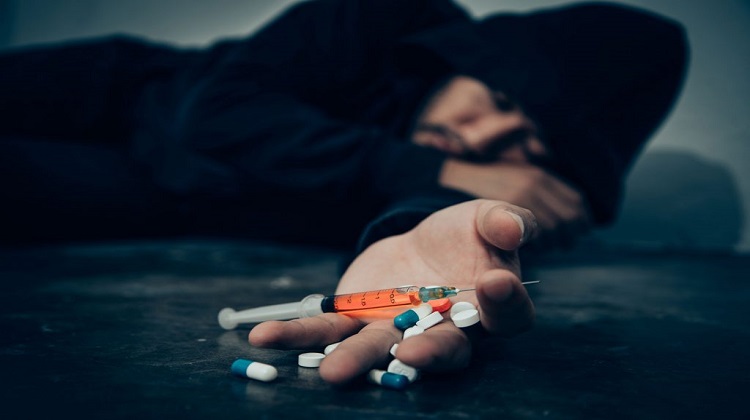
In recent years, the UK government has sought to toughen its approach to handling drug misuse in a bid to decrease the number of people using drugs, to interrupt supply and demand, and also to reduce the increasing number of deaths associated with drugs.
Drug-related deaths in the UK are at the highest level they have ever been according to current records. While something must be done to attempt to tackle this problem, there are many speculators suggesting that a more punitive approach to drug policy will ultimately cause more harm than good in the long run.
The UK Government’s Recent Tougher Measures On Drug Abuse
Within the last month, the UK home secretary, Priti Patel, introduced new tougher measures against people abusing cocaine and cannabis. This is done as an effort to reduce the UK’s overall usage of these drugs, as well as to send a message about how the government is attempting to tackle the issue with much stricter measures.
Some of these measures include forcing people to attend drug awareness courses, making people pay fines, banning them from attending night clubs, taking away their driving licences, confiscating their passports, and also threatening them with prosecution.
Studies conducted on the UK’s current drug policy suggest that the current approach is not effective because it does not prevent the use of drugs, or the problems that are caused as a result of drug use. It would appear that no matter how strict the consequences brought in as deterrents from using drugs are, drug use always continues to rise.
The UN On Worldwide Drug Policies
The UN has suggested in previous years that punitive approaches to drug policy actually violate people’s human rights, they can cause problems with healthcare systems, and they are a waste of valuable public resources.
Elsewhere they have stated that the criminalization of drug use and the use of more punitive measures to tackle drug abuse can actually lead to people facing discrimination and stigma in society, harassment from the police, and an increase in unnecessary arrests.
Moreover, the UN has also suggested that a more humane and appropriate response that would be more effective is to offer people greater support if they are addicted to drugs. It would be good to invest more time and resources into schemes, initiatives, and various forms of addiction treatment that would seek to help people with drug misuse, as opposed to punishing people for it.
So What Should The UK’s Drug Policy Be?
It’s pretty clear that tougher measures seem to do more harm than good, and do not appear to curb or reduce the deaths related to drug addiction or drug use in general. The UK government aims to use these tougher measures as a deterrent. Perhaps they should consider investing in treatment options and other forms of support for people with drug addictions, as this might potentially be a more effective way of addressing the rising drug problem in the UK. A policy of support and not of punishment, similar to the rehabilitation process used in prisons, might be a better course of action.
Getting Help With Addiction
Thankfully, there are many addiction treatment programmes, support, and resources available for people struggling with drug addictions. These various forms of treatment can offer people individualised care options that can help them to regain control of their lives, to fit their treatment around their existing schedules, and to seek support and help with their addiction, rather than be punished for it.
Detoxification Programmes
A good starting point for patients is to undergo a detoxification programme. This can come in the form of a medical or non-medical detox. The patient would either undergo the process ‘cold turkey’ (meaning that they would brave the withdrawal symptoms without drugs), or via a medically-assisted detox, meaning that they would use prescription medication to help them deal with the symptoms, after which they would wean themselves off of the medication. Detox programmes can be carried out in hospitals, health clinics, or via inpatient treatment facilities, such as residential treatment centres.
Residential Treatment Centres
Rehab centres (also known as residential treatment centres) offer patients the ability to undergo their detox treatment and other medical treatment within a luxury, state-of-the-art rehabilitation facility, offering people the ability to complete all of, or the majority of their treatment within a single location.
This might be especially beneficial to people who have strong drug cravings and get tempted being in or around environments that promote or contain frequent drug usage. The idea here being that patients can physically get away from those environments and recover in a safe, and secure environment.
Patients can get access to 24/7 medical supervision and monitoring, access to prescription medication when needed, and all of the support and resources they need, when they need it. Moreover, patients can also opt to split their treatment into a combination of inpatient and outpatient treatment.
This could mean that they choose to undergo their detox treatment within a rehab centre, a private medical facility, or an NHS clinic, and then proceed to complete the rest of their treatment via weekly sessions at a different location.
This flexibility in treatment and care can allow patients to keep up with their work, family, and overall life commitments, without their treatment getting in the way or causing conflicts. This therefore offers a step in the right direction in terms of helping people to regain control in their lives again.
Therapy, Programmes, And Counselling
Thereafter, patients can take part in 12-step programmes, 4-step programmes, and therapy and counselling options. These forms of treatment will help people to understand the root causes of their addiction, as well as helping them to build the confidence and coping mechanisms necessary for beating their addiction, and avoiding future relapse. There are plenty of support and treatment options available for people battling addiction, and these forms of care can help people to take back control of their lives, and move forward in a positive way.




